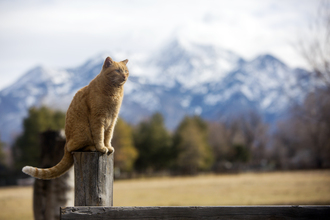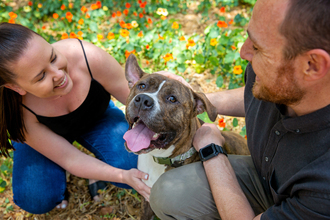
Join a Local Network Partner Effort
4,456
of 5,000
signatures
signatures
across
2 local campaigns
Find your local campaign
Your Location
Campaigns (2)
-
Protect Alaska's community catsHelp support saving the lives of community cats by advocating for lifesaving programs in your area. Please sign and share this petition to show that you support safe, humane and positive solutions for cats living in your community. Current state rules and regulations severely hamper any lifesaving efforts focused on community cats. Alaska's Board of Game has been considering rule changes that could impact cats and the people who care for them. These changes have been pushed to early 2022. Alaska’s residents deserve TNVR (trap-neuter-vaccinate-return) programs, which are animal-friendly, cost-effective, and reduce the burden and bureaucracy placed on the state’s animal shelters. The process is simple: Community cats are trapped, evaluated by veterinarians, vaccinated, spayed or neutered, ear-tipped, and returned to their outdoor homes, unable to have kittens. The simple truth is that current methods of animal control relative to community cats are expensive, ineffective and often inhumane. Rule changes allowing TNVR programs would be better for the cats, for public health and for the wildlife we all want to protect.635 of 800 SignaturesCreated by Keiko B.
-
ClovisTell city officials: support animal shelter programming in ClovisSometimes when you want to create change in your community, it's hard to know where to begin. We work with local advocates like you to make sustainable changes that save lives while creating a framework of support for the pets of Clovis and the people who care about them. Animals who end up at the county shelter are part of this community and county officials need to know the people of Clovis care about the whole community- pets and people. The people and pets in Clovis deserve programs that focus on providing safe and positive outlets for cats and dogs entering shelters. In 2020, 66% of all animals entering the shelter left alive and only 32% of cats entering the shelter left alive. It is important your representatives know that saving cats and dogs is important to the people of Clovis. In order to create change at the shelter- programs that are proven to be effective at saving animals lives and fiscally responsible need to be implemented at the shelter and supported by the community. The good news is that you can be a part of supporting positive programs that are working around New Mexico. Some examples include community cat programming (to ensure cats are spayed/neutered, vaccinated, and returned to their homes), foster programming (to provide temporary housing to pets prior to finding their permanent homes), adoption outlets, and progressive field services and resources to ensure people have what they need to keep their pets. By advocating for these programs and continued collaboration with other community organizations, you can be part of creating a healthier community for pets and people. Show your support by signing and sharing today!383 of 400 SignaturesCreated by High Plains Humane S.

.jpg)
